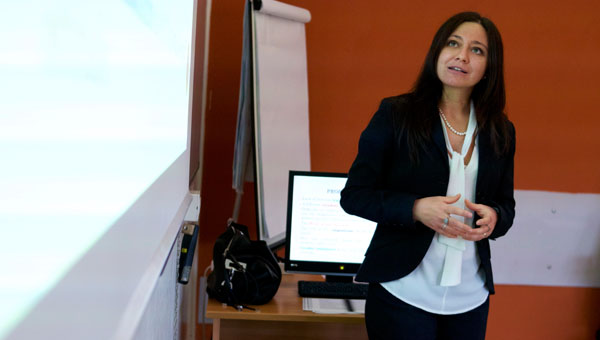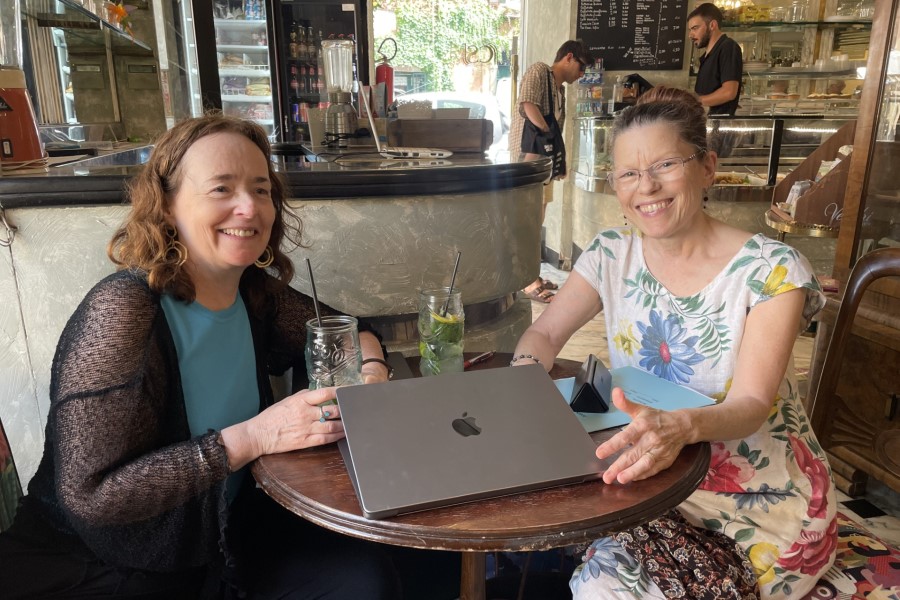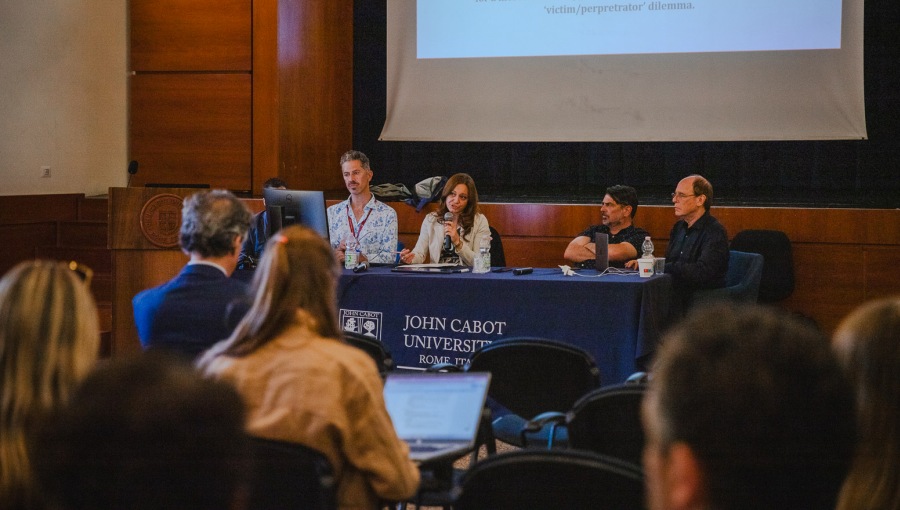JCU Professor Silvia Scarpa Moderates Webinar on Hybrid Systems and the Crisis of Multilateralism

Professor Silvia Scarpa
As part of the 11th edition of the Festival della Diplomazia (Diplomacy Festival), entitled “Reset Control: Managing Transformations in a No Compass World”, JCU Professor Silvia Scarpa moderated the webinar “The South-East passage: The age of hybrid systems and the crisis of multilateralism.” Originally scheduled as an an-in-person event, the webinar was instead held “virtually” on October 27, 2020, hosted by the Embassy of Italy to the Holy See. The event kicked off with a short video on the history of the Borromeo Palace, headquarters of the Embassy of Italy to the Holy See.
The Italian Ambassador to the Holy See, His Excellency Pietro Sebastiani, began by discussing the concerns connected with the weakening of the system of multilateral institutions. Intergovernmental organizations are losing power because of, among other things, the rise of nationalism, increasing trade disputes, and the shift of power balance in world politics towards the East. This weakened system has to face numerous challenges, such as climate change, poverty, increasing inequalities, forced migration, etc. Ambassador Sebastiani commented on Italy and the Holy See’s common concerns about this system in light of the above-mentioned challenges, referring to Pope Francis’ 2015 Encyclical “Laudato Sì” when His Holiness talked about the concept of “integral ecology,” which highlights the relationship between humans and nature. The same year, the Paris Agreement to combat climate change was adopted and it was enforced in 2016.
The panel included Roberta Gatti (Chief Economist of the Human Development practice Group at the World Bank), Domenico G. Fanizza (Executive Director at the International Monetary Fund), and Father Augusto Zampini (Adjunct Secretary of the Dicastery for Integral Human Development of the Holy See). Gatti talked about her work at the World Bank in terms of assessing health services and school systems and commented on the negative effects that Covid-19 will have in both areas, particularly in developing nations. Both Gatti and Fanizza claimed that the multilateral system of financial institutions – including the WB and the IMF – is alive and functioning. Fanizza added that bilateral and multilateral relations are equally necessary in the system of world politics. Father Zampini focused instead on three key issues, namely, justice, inclusion, and participation, to emphasize how the current neoliberal economic system is not conducive to guaranteeing a world system that respects the environment and attempts to overcome inequalities. The panel constituted an opportunity for an open discussion on the ways in which multilateral financial institutions could be more responsive to the increasing global challenges that are faced by the States of the world.
Watch a recording of the event on YouTube
Professor Scarpa holds an undergraduate degree in Political Science (LUISS Guido Carli University), a Master in International Protection of Human Rights (University of Rome “La Sapienza”), and a Dottorato di Ricerca summa cum laude in Political Science – Human Rights (Scuola Superiore Sant’Anna). She is the author of the books International Human Rights Standards for Law Enforcement Authorities (UniversItalia, 2012) and Trafficking in Human Beings: Modern Slavery (Oxford University Press, 2008) and of the Study on Contemporary Forms of Slavery (European Union, 2018).
Professor Scarpa will be teaching the Courses PL/LAW 325 Human Trafficking and Contemporary Slavery, PL 212 International Organizations, and PL/LAW 320 International Law in the Spring Semester 2021.





